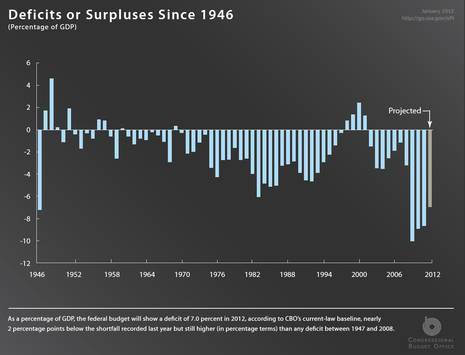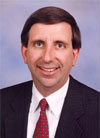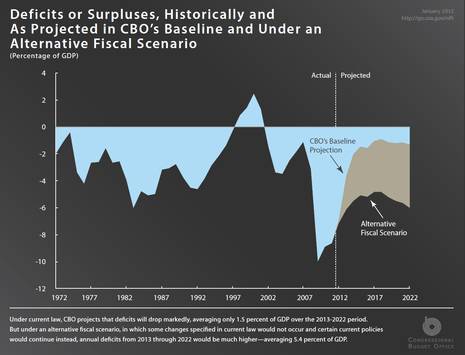
Taxes and the Deficit | By Kevin F Reilly JD, CPA 
Normally, this column is supposed to cover the tax changes over the prior year and how they impact the hospitality industry. Last year, we commented about how 2010 was an interesting year but little in the tax field had passed. 2010 was all about health care reform, the change in control of the House and the rise of the tea party. It was a very political and partisan year. If anything, 2011 was worse. Never has so little been accomplished by so many. Brinkmanship was the key word for 2011. It will be known more for what did not occur rather than what did. It is not unusual for partisan politics to take center stage in an election year. While 2011 was not, the race for the Presidency and control of the House and Senate began before all the winners from 2010 were known.
Two major issues were preeminent during 2011. The first was the size of the deficit. To agree to an extension of the debt limit, the House (mainly the newly elected members) required substantial reductions but as a compromise, left it up to a House/Senate committee to recommend the cuts. Proposals were put forward to cut billions in spending while at the same time raising taxes. The "reform of the tax system" was not accomplished. As a result, automatic spending cuts of $1.2 trillion over ten years are to be made. In addition, without some action, the Bush tax cuts will expire at the end of 2012, resulting in substantial tax increases for 2013.
The other issue was the extension of the temporary social security tax cut. For 2011, the employee share of Social Security Tax was reduced from 6.2 percent to 4.2 percent. Similar reductions were made for the self employed. However, Congress and the President were unable to agree on a method to pay to extend the benefit for the 2012 tax year. Not to be viewed as the Grinch, right before Christmas an agreement was reached to extend the tax break for the first two months of 2012.
After the New Year, the President again raised the issue of extending the break for the rest of 2012. He proposed the same method of paying for it that had previously been shot down by the Republicans. However, in a surprise move, the Republicans (on the day this article was submitted) said they would not require this tax break to be offset with spending cuts. They realized that fighting this battle was a losing cause with the American people. As a result, the Social Security tax withholding rate for employees will remain at 4.2 percent for the remainder of the year.
Hospitality Tax Issues
Several tax issues are important for those in the hospitality industry. The IRS has established a Voluntary Classification Settlement Program (VCSP). This program will enable employers to voluntarily reclass workers for federal employment tax purposes and take advantage of audit protection and a reduced penalty framework. The VCSP is open to taxpayers currently treating their workers as independent contractors. The IRS continues its emphasis on foreign assets held byUStaxpayers, including additional information reporting by both taxpayers and foreign financial institutions. The penalties are severe and enforcement is active. Two provisions passing at the end of 2010 which will have an impact on the industry are:
- a 50 percent bonus depreciation allowance for property placed in service during 2012, and
- increasing the maximum expense deduction to $125,000 and setting the phase out amount at $500,000 for years beginning after December 31, 2011.
The President issued his budget blueprint in February 2012. The Republicans announced it dead and the Democrats see no need to pass a budget for the year. It is not expected move forward but it does contain several tax provisions. The biggest is the expiration of the tax cuts and a minimum tax rate on all income of 30 percent for those earning more than $1million (the so-called Buffet tax). The President also indicated that he would introduce business tax reform by the end of February which means we should have an idea of what it will look like by the time this article is published. Although in an election year it is unlikely substantive tax legislation will pass, it is hoped that some bills impacting the hospitality industry will pass.
The Deficit and Debt
Regardless of your political leanings, the size of the deficit and the federal debt is of concern (Figure 1). Because of politics, the raising of the debt limit has changed from something done on a regular basis to political chicken, with the realistic potential for aUSdefault during the 2011 discussions.

The second chart (CBO Chart 1) shows the historical surplus or deficit. While we have been in a recession over the last few years, the size of the deficit rivals that from World War II. The third chart (CBO Chart 2) projects the deficit out until 2022. Both charts are from the Congressional Budget Office. Unfortunately, the CBO analysis is based on the law as it reads today. As such, it projects a rosy scenario with the deficit dropping to 1.5 percent of Gross Domestic Product. However, it is unlikely that all the automatic cuts will be made since so many of them relate to defense spending. Also, it appears unlikely that the Bush tax cuts will be allowed to expire in their entirety. As a result, the alternative scenario could occur, which is unsustainable.
There is no easy solution. Too much of our budget is in entitlements, defense spending and interest on the debt. Without an increase in revenue, or the political courage to address entitlements, the problem will grow exponentially. The election cycle is continuous. The budget of the President and posturing of Congress are nothing more than election year politics. Both political parties already are geared up for elections so many of the hard decisions will not be made and the buck will be passed to the next Congress or even the next generation.
* * *
Kevin Reilly, an attorney and CPA, is a member of the firm of Witt Mares. Witt Mares is a member of PKF International Ltd, an association of legally independent member firms. He heads up the hospitality practice for the Fairfax, Va.-based firm. This article was published in the April 2012 issue of Lodging.
About PKF CONSULTING USA
Headquartered in San Francisco, PKF Consulting USA (www.pkfc.com) is an advisory and real estate firm specializing in the hospitality industry. PKF Consulting USA is owned by FirstService Corporation and is a subsidiary of Colliers International. The firm operates three companies: PKF Consulting USA, PKF Hospitality Research, Colliers International Hotels. The firm has offices in New York, Boston, Indianapolis, Chicago, Philadelphia, Washington DC, Atlanta, Asheville, Jacksonville, Orlando, Tampa, Houston, Dallas, Los Angeles, Bozeman, Miami, Portland, Sacramento, and San Francisco.
PKF Consulting USA offers hotel appraisal and hotel valuation services, hotel market studies, hospitality litigation support, and hotel advisory services. Colliers International Hotels offers hotel brokerage and hotel transaction services. PKF Hospitality Research produces Hotel Horizons®, an econometrically based hotel forecast, BenchmarkerSM, a customized comparative hotel benchmark report, and Annual Trends® in the Hotel Industry, a historical hotel financial publication featuring rich hotel statistics, as well as hotel research services.
Robert Mandelbaum
Director of Research Information Services
Email: robert.mandelbaum@pkfc.com
Colliers PKF Hospitality Research
www.pkfc.com
3475 Lenox Road | Suite 720
USA - Atlanta, GA 30326
Phone: (404) 842-1150
Fax: (404) 842-1165
Email: robert.mandelbaum@pkfc.com





